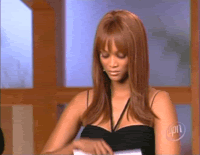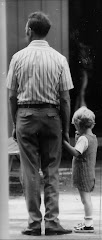When The Venture Bros. premièred in 2004, creator Jackson Publick and partner Doc Hammer could have coasted along on their concept, which centered on adventure and supervillain archetypes slathered in compulsively nerdy dialogue. Instead, they built a rich, self-mocking universe around super-scientist Dr. Rusty Venture, his twin sons Hank and Dean, and their butterfly-costumed nemesis the Monarch. It's easy to make asses out of characters like this, especially in front of Adult Swim fans who grew up on Space Ghost Coast To Coast, Harvey Birdman: Attorney At Law, and Sealab 2021. The difference is that Publick and Hammer work their plot tangents into a larger story, all while testing the tempers, moral flexibility, and bantering talents of venal heroes and bureaucratically regulated villains. The show's third season throws further shocks into the story. Before Sunday night's première on Adult Swim, Publick spoke with The A.V. Club about story arcs and speed suits.
The A.V. Club: Judging from the first two episodes of the new season, you've got some pretty big shifts planned in the larger plotlines. How far in advance do you decide where it's going?
Jackson Publick: We often start a season with a few goals. We don't have an overall plan, but usually some character's plotline is kind of demanding an arc. Season one, it was Dr. Venture. Season two, it was the Monarch and Dr. Girlfriend breaking up and getting back together. So it's just kind of a general arc, and a kind of shortlist of things we want to accomplish before the end of the season. We seed those things as consciously as we can.
Doc and I are writing separately, often, and turning in our scripts in a row, so one of us will see what the other one did in the other episode and throw that little plot or backstory element a bone. It kind of organically builds on itself, and in the end, it looks a little more like we know what we're doing than we actually do. But we do kinda know what we're doing. [Laughs.]
AVC: Pretty much all the characters in the show are subject to mockery, but you seem to see some value in spending a lot of time with them over the course of a larger plot.
JP: I think it's more fun to grow to love characters who are flawed than it is to present perfect characters. Perfect characters aren't very funny. Certainly my friends are a strange, intense bunch of people, and people's families drive them crazy, but challenging relationships are always more rewarding. It was always our goal to have Dr. Venture be kind of the central character and be kind of an asshole, but somebody that you eventually grow to love. He's a mouthpiece for your snottiest, innermost thoughts, and he can also be a target for cathartic release when he's being too much of an asshole.
AVC: Do you feel that some of the characters are more respectable than others?
JP: Uh, yes. Sure. Certain characters follow a personal code a little more than others. I think Dr. Orpheus is a genuinely decent person, but he's kind of a nerd. He's the one who gets all excited about these things and wants to do good, and he's surrounded by people who make fun of him for it. Brock Samson, yes, he'll kill anybody and he'll screw anybody, but he is clearly living his life by a certain code, and is a little above a lot of the nonsense around him. And he just kind of doesn't take any shit. The boys are good. Hank's a little not as good as Dean, but Hank's also a little crazier, so he'll probably turn out okay. The Monarch is actually a terrible person, but you grow to love him because he's ultimately fragile and flawed, and you feel sorry for him and you can relate to him. He's the guy who explodes at you and then says he's sorry, or he's forced to.
AVC: It feels like the show gives viewers a lot of freedom to choose who they respect or sympathize with.
JP: Right, right. [Laughs.] It's a little bit of a pop-cultural, generational thing, too. My generation has a hard time being genuine and enthusiastic. There's a lot of irony in our culture. In a way, some of it's toying with that kind of aspect of the culture. The characters who are genuine and get a little too excited about something geeky are made to feel foolish for it, but they're also seen in a better light than some of the characters who think they're too cool for everybody. For us making the show, there's that push and pull, too, because we're goofing on Johnny Quest and Marvel Comics and bands and stuff like that in the dialogue, but there's a genuine love for most of these things that comes out of us. We don't make fun of anything we don't love, for the most part.
AVC: Do you think people pick up on the affectionate side of the mockery?
JP: I think our fans are pretty attuned to it, actually. Our characters were part of the world that we were, and they love and remember and hate the same things that we did, and it's affected their lives. That's why it kills me when we get legal notes about some of this stuff, because you're just like, "I don't understand why I can't use that, or talk about that, or reference it. I was bombarded with this on television when I was 6. Somebody spent a lot of money making sure that I would never forget this, and now when I act like it's a household word, I'm not allowed to use it." There's your irony!
AVC: Do you see a lot of these characters as static?
JP: The ones who are static tend not to stick around too much, or we lose interest in writing them. The boys have probably evolved the most. I think Brock's evolved a lot. I think in the next season we're planning, we want to start moving people ahead more consciously, letting them develop a little. They're gonna keep their personalities, but we have had time pass, and we have had people kind of respond to past events. We've probably spent more of our time, up to this point, showing their past and what got them to this point. Probably we'll start trying to let them live in the present a little more, and develop.
AVC: There's a lot of weird body imagery in the show, especially where Dr. Venture is concerned. In the new season, he confronts his father's penis, which then turns into Dr. Henry Killinger. What draws you to that?
JP: I wouldn't go so far as to say I psychoanalyze myself, but I do try to find the potential theme in that, and explore it. The weird body stuff does seem to gravitate toward him more than anybody else, I think because he's such an ugly character, and because he seems to have body issues anyway. He's a relatively skinny guy who pops diet pills, and he lost his hair and everything. He's just a vessel for the things you fear most about aging and about being a man and whether you're ugly. It all comes squirming out of him at some point.
AVC: Is that why he gets Dean fitted for a speed suit and tries to shape his kids in his own image?
JP: That's a character-development ball that we've kind of dropped a little. We'll have to get more overt about that in season four, I think. There's always been the suggestion that Doc really doesn't like Hank as much as he likes Dean. Maybe just because Dean's the skinnier one with the same color hair, he's gonna push one of them into following in his footsteps, because he doesn't know any better. It's gonna be Dean, because Dean is smarter and Hank is out of his mind. I'm glad you like that scene. Nobody else has ever really cared about [the speed-suit scene], and we love that. We also just love repeating the words "speed suit."
AVC: Have you ever invented a character that you had to scrap?
JP: Sure, yeah. There's a few lying around in my notebook that are in the "I gotta use this guy someday" folder, but you try to pursue them and you can't quite find the angle on it. There's probably been a couple that have appeared on the show that you just lose interest in after a while.
AVC: Do you find it daunting to have the freedom to take so many tangents?
JP: The only daunting thing is trying to stay interesting and interested and excited about things. At this point, we have enough characters and we know so much about them that we could just have any four of them sit in a room and entertain you for a half an hour. If anything, sometimes maybe we overestimate how entertaining it will be to see something happen to a particular character.
Probably about three-quarters into any season, I start feeling like maybe we're getting a little too heavy, or we're getting a little too into our own mythos, or whatever. Fortunately, that's right around when we kind of run out of episode ideas that we had at the beginning of the season, and are sort of challenged to come up with one in, like, a week. Doc and I call it "wishlisting." We'll get on IM or whatever and we'll just shoot back single-sentence ideas for the worst possible, craziest thing that we could stick in an episode, and one or two of them will start sticking, and then you'll go, "Oh yeah. That's supposed to be the fun of this. Coming up with crazy shit and finding a way to make it work."
AVC: Do you have a favorite character to voice?
JP: Probably the Monarch, because I just get to scream. I get a headache after, because I'm kind of screaming through my nasal passages the whole time, and I'm a smoker, so they're already blocked up. And I sweat, because I'm jumping around like an idiot.
AVC: You've said the new season might alienate new viewers altogether. Why is that?
JP: We don't do a whole lot of re-introducing anybody. We are trading on your knowledge of the characters. If you watched the first four episodes of this season, you would kind of not know what the show's about on a regular basis. For the most part, even the most basic standalone ones are somehow steeped in history or relationships or whatever.
AVC: There's a scene in that episode where Dr. Venture's desperately pulling out cute inventions to try and impress a client. Do you ever have moments like that in the creative process?
JP: Totally, yeah. Every episode, yes. I mean, if you're following a story that's funny, you gotta fill in every page of the script still. You still gotta cover every second of animation, and sometimes a scene's just not working, and you're looking for the funny line that will pull it together. Or you realize you've written a scene that's all about plot or something: "What is the most screwed-up angle I could take on this?" If you need a lawyer, stick a tinier lawyer out of his stomach. I'm sure that character started as just a classic Southern lawyer, and then we're like, "How do we push this into super-science crazy-land?"


 BURBANK, CA - May 28, 2008 - Universal Pictures Digital Platforms Group today announced that "Battlestar Galactica's" infamous Cylon Centurion Robots have arrived... as full-size masterpiece replicas from Fred Barton Productions. The announcement was made by Bill Kispert, Vice President and General Manager, Universal Pictures Digital Platforms Group. This high-end replica was created by Fred Barton Productions through a licensing agreement with Universal Pictures Digital Platforms Group.
BURBANK, CA - May 28, 2008 - Universal Pictures Digital Platforms Group today announced that "Battlestar Galactica's" infamous Cylon Centurion Robots have arrived... as full-size masterpiece replicas from Fred Barton Productions. The announcement was made by Bill Kispert, Vice President and General Manager, Universal Pictures Digital Platforms Group. This high-end replica was created by Fred Barton Productions through a licensing agreement with Universal Pictures Digital Platforms Group.



































































